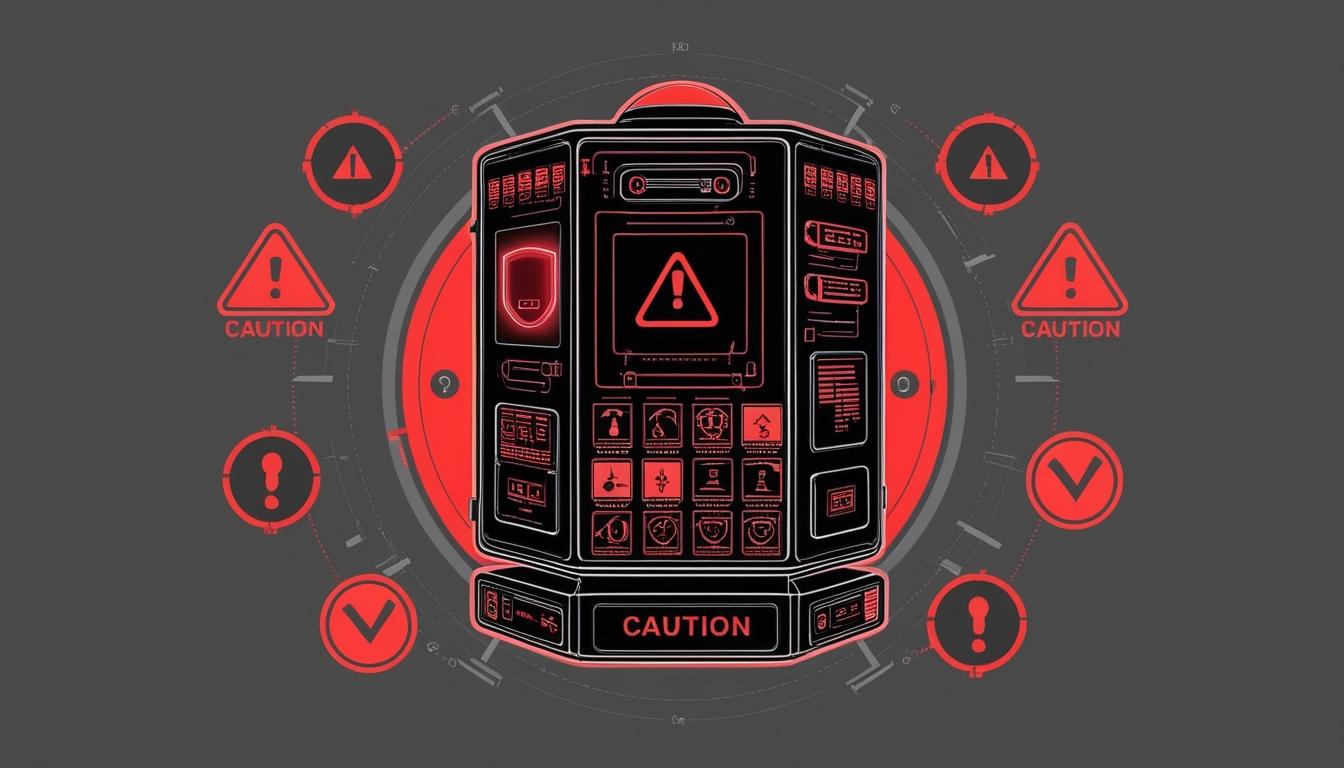The recent Consumer Electronics Show (CES) in Las Vegas brought forth a slew of innovative technologies aimed at enhancing consumers' lives, many of which leverage artificial intelligence (AI) for greater efficiency and convenience. However, a panel of identified dystopia experts has responded critically, awarding honours to products that they deem the least desirable in terms of repairability, privacy, and sustainability.
On Thursday, the fourth annual awards were announced, highlighting what were termed the “Worst in Show” products. The panel underscored an ongoing issue they perceive within the industry: the integration of surveillance technologies into everyday items, which presents potential privacy concerns. Liz Chamberlain, the Director of Sustainability at the e-commerce site iFixit, articulated that "we're seeing more and more of these things that have basically surveillance technology built into them," referring to devices now equipped with microphones and cameras.
Among the products highlighted, the Ultrahuman Rare Luxury Smart Ring was labelled as the "least repairable" by Kyle Wiens, CEO of iFixit. The smart ring, priced at $2,200, boasts upscale aesthetics but features a battery lifespan that limits its usability to approximately two years. Wiens noted, “Luxury items may be fleeting, but two years of use for $2,200 is a new low,” indicating the difficulties consumers may face when attempting to replace an irreparable battery.
Another contentious product, Bosch's “Revol” crib, employs an array of sensors and AI to monitor infants' vital signs. While the manufacturer asserts that data storage is transparent, Cindy Cohn, Executive Director of the Electronic Frontier Foundation (EFF), expressed concerns about the degree of data collection enabled by devices furnished with microphones and cameras. “Parents expect safety and comfort—not surveillance and privacy risks—in their children’s cribs,” she remarked.
In the realm of sustainability, Stacey Higginbotham, a policy Fellow at Consumer Reports, designated SoundHound AI’s In-Car Commerce Ecosystem as “least sustainable.” This system permits passengers to order food directly from their vehicle's infotainment system. Higginbotham critiqued the feature for promoting wasteful consumption and questioned its minimal value addition for drivers, emphasising that “it increases energy consumption” while being a source of distraction.
Security was another area of concern, as TP-Link’s Archer BE900 router was deemed “least secure.” Paul Roberts, founder of The Security Ledger, highlighted vulnerabilities in the device, compounded by the obligations under Chinese law, which requires the company to report security flaws to the government before notifying the public.
The category of “who asked for this?” brought attention to Samsung's Bespoke AI Washing Machine, which was criticised for incorporating numerous unnecessary features, such as the ability to place phone calls. Nathan Proctor, Senior Director of U.S. PIRG, branded the machine as expensive and difficult to repair, a sentiment echoed in Samsung Vice Chairman Jong-Hee Han's insistence on the importance of integrating new technologies and intelligence into home devices.
The title of the “worst product overall” was conferred upon the LG “AI Home Inside 2.0 Refrigerator with ThinkQ,” according to Gay Gordon-Byrne, Executive Director of The Repair Association. The refrigerator was said to embody many trendy features, including an internet connection and touchscreen. However, Gordon-Byrne warned that these additions come with heightened energy consumption and repair costs, potentially diminishing the appliance's practical lifespan.
The CES event sparked a dialogue around not only the advancements and potential benefits AI can bring to business practices and consumer products but also the implications these technologies hold regarding sustainability, security, and repairability. As this conversation continues, businesses and consumers alike will navigate the dual-edged nature of AI's evolving role within daily life.
Source: Noah Wire Services
